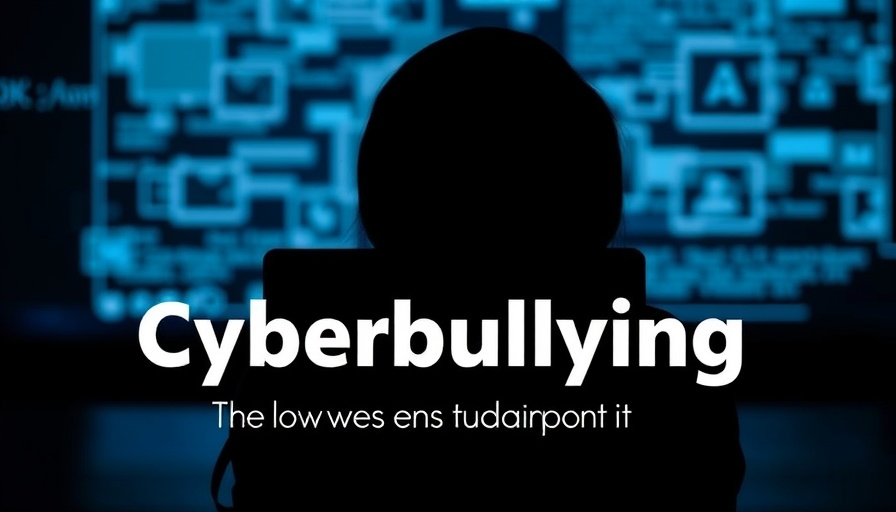
The Growing Impact of Cyberbullying
Cyberbullying is a serious issue affecting a significant number of young people today. Defined as bullying through digital platforms, it includes harmful behaviors such as spreading lies, sending abusive messages, and impersonating victims online. Recent research from the Cyberbullying Research Center indicates that approximately 1 in 4 teens has experienced cyberbullying, and nearly 1 in 6 has been a perpetrator. This illustrates that cyberbullying isn't just a fleeting concern; it is a pervasive issue that can have lasting effects on mental health and social development.
Understanding the Effects on Mental Health
The ramifications of cyberbullying extend beyond immediate emotional distress. Victims often experience increased anxiety and depression, hindering their ability to thrive both personally and academically. The study conducted by Ashley Abramson highlights how high levels of victimization can lead to adverse coping mechanisms such as substance abuse. Parents need to be aware of these risks and engage proactively with their children to monitor and address bullying behavior promptly.
How Parents Can Foster Open Dialogue
Communication is critical in preventing and addressing cyberbullying. Parents should initiate discussions about online safety and the importance of reporting bullying incidents. According to mental health experts, encouraging children to be open can alleviate the fear of losing internet access if they share their experiences with cyberbullying. Creating a supportive environment enables kids to feel safe discussing their online interactions.
Practical Steps for Prevention and Intervention
Parents can take several measures to protect their children from cyberbullying. Monitoring online activity, setting clear social media guidelines, and establishing open lines of communication about digital interactions are foundational steps. Teaching children whom to approach for help—whether it’s a teacher or trusted adult—can empower them to act if they encounter bullying. Additionally, keeping a record of any bullying incidents, such as screenshots, is vital if the situation escalates and requires intervention.
What to Do If Your Child Is Being Bullied
If you discover that your child is a victim of cyberbullying, encourage them to document the harassment without responding to the bullies. Help facilitate a report to the social media platform involved, as well as approaching school authorities if necessary. Knowing when to contact law enforcement is also crucial, especially if threats are involved.
The Role of Technology Companies
It’s important to hold technology companies accountable for maintaining safe online spaces for youth. While some companies are attempting to improve their platforms, the responsibility largely falls on families and communities to foster safe internet usage. Advocating for stronger protections within these platforms can push reforms that reduce the prevalence of cyberbullying.
As parents, being proactive about your child's online presence can help prevent cyberbullying and promote a safer digital environment. Equip yourself with knowledge and engage directly with your children about their experiences online to ensure they feel supported and protected.
 Add Row
Add Row  Add
Add 




 Add Row
Add Row  Add
Add 

Write A Comment